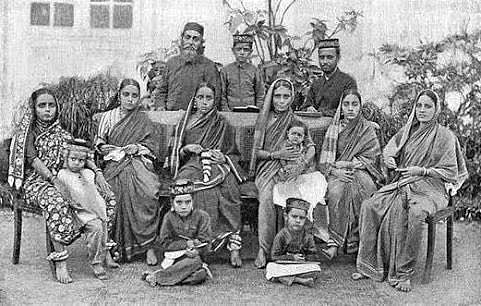A look at the Jewish community in India that the Prime Minister will be engaging with during his trip to Israel
TALHA ASHRAF & AADYA SINHA
An estimated 4,000 Indian Jews in Israel will greet Indian Prime Minister Narendra Modi at the Tel Aviv fairgrounds, the small but robust community of Jews in India are celebrating the visit as historic and heroic. The Prime Minster has referred to the Indian-Jewish community saying he was proud of Jewish sons and daughters of India.
Although many prominent names such as poet Nassim Ezekiel, yesteryears star Nadira and former Indian Army commander Lt.Gen. JFR Jacob (retd) belong to the community. Their history, culture and unique position in Indian society is rarely discussed, partly owing to the variations within Indian Jews.
Solomon F. Sopher, a prominent member of the Indian Jewish community and chairman of Sir Jacob Sassoon Synagogues and Allied Trusts in Mumbai, expressed his “extreme happiness” at the Prime Minister’s visit and promised a “heroes welcome” upon Modi’s return.
He also hoped that with growing ties, India would be more likely to recognise Jews as a minority nationally, a status they have received only in Maharashtra and West Bengal.
The community in India can be divided into four broad groups based on their origin and distinct culture:
Cochin Jews
After the destruction of The Second Temple in 70 CE, numerous Jewish settlers arrived at Cranganore, or modern day Kodungallur near Thrissur. The Cochinim or Cochin Jews in the state of Kerala are the most ancient community in the diaspora with possible roots to King Solomon.
Earliest documentary evidence dates back to 1000 CE when a Jewish trader Joseph Rabban received a set of engraved copper plates from the Hindu ruler of Cranganore. In the late 18th century, Cochin was in fact a more important centre for Jews than New York. In 1792, the community had 2,000 Jews and nine synagogues, while New York had only 72 Jewish families and just one synagogue.
The community is disappearing quickly with only about 40 members left in Kerala, seven in the town of Mattancherry in Kochi and the rest spread around the city of Ernakulam and surrounding areas. Most members of the community left for Israel in the 1950s.
Bene-Israel Jews
According to folklore, as early as 175 BCE, seven exiled Jewish couples from Gailee found themselves shipwrecked in the village of Navgaon, located in the Konkan region. They are often believed to be the first Bene-Israel Jews in India.
Having assimilated with the local culture, they took on the occupation of oil-pressers and adopted the local language and dressing. They maintain a few outwardly Jewish customs such as eating Kosher meat, circumcision and observing Shabbat.
Today, a majority of the Bene Israel Jews live in Mumbai with some scattered in small towns around Mumbai. A few families are also in Ahmedabad, New Delhi, and Kolkata. Even as other Jewish sub-communities have relocated to Israel, the Bene-Israelis largely remain, making the majority of India’s Jewish population.
Baghdadi Jews
The 18th century saw Jews from Arab countries arrive in India in waves. They were collectively known as Baghdadi Jews, owing to their view of Baghdad as their religious centre.
Many of them came in order to escape religious persecution, others were largely cloth traders, who settled along the coast. They lived in Surat before moving to Mumbai. The community brought their rich Jewish heritage with them, building the Keneseth Eliyahoo synagogue in Colaba and the Magen David Synagogue in Byculla. While a few important families remain in Mumbai, a majority of the Baghdadi Jews have left for Israel.
Bnei Menashe
The Bnei Menashe (sons of Manasseh) claim to have descended from one of the Ten Lost Tribes of Israel, who were sent into exile by the Assyrians after they invaded the northern kingdom in approximately 721 BCE. The community believes that Manmasi—the legendary Kuki-Mizo ancestor— was the Hebrew Manasseh, son of Joseph.
This group of Chin-Kuki-Mizo people started a Messianic movement in 1950s and by the 1960s adopted observance of the Jewish customs. After investigations by Rabbi Eliyahu Avichail, in the 1980s to ascertain their claim as a Lost Tribe, the community was named Bnei Menashe. Following this, they began immigrating to Israel despite a controversy that saw them being called economic migrants.
However in 2005, the Chief Rabbinate of Israel accepted them as Jews due to the devotion displayed by their practice through the decades, but they still require formal ritual conversion.



